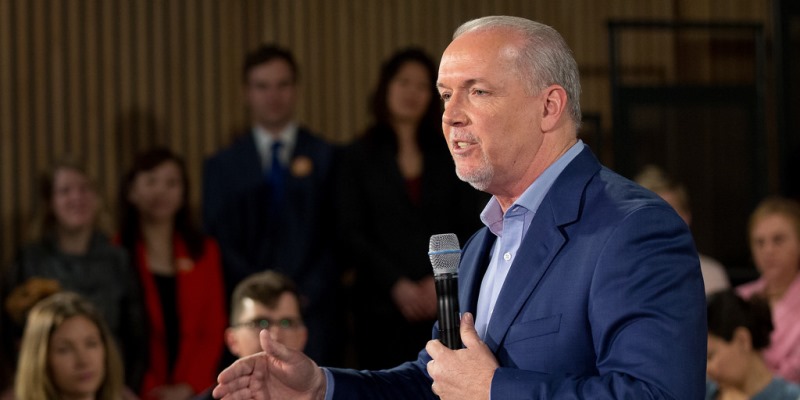There's nothing 'affordable' about a $1,000 tax increase

“Making your life more affordable” has been a dominant rhetorical theme of British Columbia’s government—so much so, that its 2018 budget uses the word “affordable” 76 times. For her part, Finance Minister Carole James mentioned “affordable” 26 times in her latest budget speech. While making life more affordable is a terrific goal, the Horgan government has substantially increased taxes on middle-class families. It’s hard to see what’s affordable about that.
For context, before this government’s tax increases, the average B.C. family’s total tax bill (federal, provincial and local taxes) was $47,868—nearly 42 per cent of its income. This includes income, payroll, sales, property, carbon, health, fuel and alcohol taxes, to name but a few.
Given the tremendous tax burden B.C. families face, it’s no wonder Minister James said her government’s elimination of Medical Services Plan (MSP) premiums will take “some pressure off people’s pocket books.”
That would of course be nice, but unfortunately it’s not the case.
Since assuming power in July 2017, this government has enacted or announced several significant tax increases, which more than offset its elimination of MSP premiums.
Start with income taxes; the government raised taxes on British Columbians earning more than $150,000—to a rate of 16.8 per cent from 14.7 per cent under the previous government.
It also increased the general business income tax rate from 11 per cent to 12 per cent (while maintaining the previous government’s pledge to reduce the small business tax rate from 2.5 per cent to 2.0 per cent). And substantially increased the carbon tax from $30 per tonne when it took office, to $50 per tonne by 2022. What’s more, it has completely abandoned a commitment to making the carbon tax revenue neutral.
Then there’s the MSP premiums switcheroo. First, the previous Lib¬eral government said it would cut MSP premiums in half, a plan the NDP adopted and implemented on January 1, 2018 while also planning to eliminate the remaining half on January 1, 2020. To replace the forgone revenue, the government will levy a new Employer Health Tax (EHT) starting in January 2019.
While the EHT will be levied on employers, don’t be fooled—it will very quickly be paid by workers. A recent empirical study of Canada by economists based at HEC Montréal, the graduate business school of the Université de Montréal, found that “payroll taxes are passed almost entirely to workers in the form of lower wages.”
All told, these tax increases will add an expected $1.9 billion to the tax burden of British Columbians once fully implemented.
But what do these tax hikes mean for average families?
As noted in a recent Fraser Institute study, the average B.C. family will pay $959 more in taxes, led mainly by a $498 increase in fuel and carbon taxes. And while the government has tried to protect lower-income families by increasing the Low Income Climate Action Tax Credit, families with household incomes ranging from $20,000 to $50,000 will, on average, still pay nearly $200 more in taxes.
This calculation does not include several tax increases on residential property (i.e. increased property transfer taxes, speculation tax and increased school tax), which total more than $500 million.
There’s no question that these tax hikes will hit some middle-income families including families who experience substantial appreciation in home values, or where property tax hikes result in higher rental prices for renters in an already tight rental market.
Higher carbon, personal income, payroll, business and residential property taxes will not only hit the wallets of B.C. families, it will also make the province less-attractive for business investment and entrepreneurs and make it more difficult to attract and retain top talent, with ripple effects throughout the economy.
“B.C.—less affordable for families and less attractive for business”—not exactly a slogan for success.


